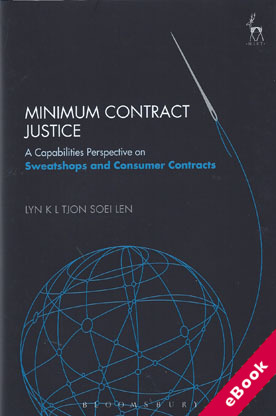
The device(s) you use to access the eBook content must be authorized with an Adobe ID before you download the product otherwise it will fail to register correctly.
For further information see https://www.wildy.com/ebook-formats
Once the order is confirmed an automated e-mail will be sent to you to allow you to download the eBook.
All eBooks are supplied firm sale and cannot be returned. If you believe there is a fault with your eBook then contact us on ebooks@wildy.com and we will help in resolving the issue. This does not affect your statutory rights.
The collapse of the Rana Plaza in Bangladesh (2013) is one of many cases to invoke critical scrutiny and moral outrage regarding the conditions under which consumer goods sold on our markets are produced elsewhere.
In spite of abiding moral concerns, these goods remain popular and consumers continue to buy them. Such transactionsfor goods made under deplorable production conditions are usually presumed to count as ‘normal’ market transactions, i.e. transactions that are recognized as valid consumer-contracts under the rules of contract law.
Minimum Contract Justice challenges this presumption of normality. It explores the question of how theories of justice bear on such consumer contracts; how should a society treat a transaction for a good made under deplorable conditions elsewhere?
Minimum Contract Justice defends the position that a society that strives to be minimally just should not lend its power to enforce, support, or encourage transactions that are incompatible with the ability of others elsewhere to live decent human lives.
As such, the book introduces a new perspective on the legal debate concerning deplorable production conditions that has settled around ideas of corporate responsibility, and the pursuit of international labour rights.